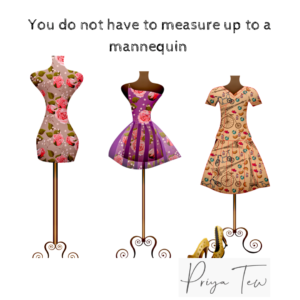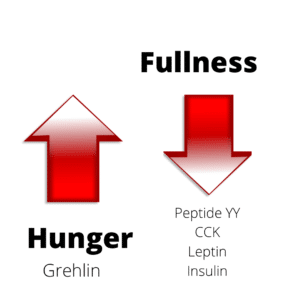The truth is, weight loss is HARD. It is sold as something simple, just eat less, move more. Yet how many times have you tried this only to fail?
All around us, the world can be rife with diet talk, that slowly seeps into our minds, affects our thinking and before you know it you have been “diet-cultured”. Listening to that talk about needing to lose weight to fit into clothes, needing to be thinner to be accepted, being “good” with what you have eaten or how a lack of willpower has led to you being lazy and fat can be some of less than helpful phrases.
The toys we played with, the images in books, TV shows, magazines, social media images and even the mannequins in shops give us a false idea of how our bodies should look. Society tells us unless we look a certain way we will not “fit” the acceptable ideal. We will not be liked, loved or wanted. A study looked at mannequins in UK shops and found 100% represented an underweight female body. To compare, only 8% of male mannequins were underweight. How outrageous is that? Think about that when you next go clothes shopping, you do not have to measure up to plastic model.
Why is it so hard to lose weight?
In actual fact the majority of diets just do not work. Let me clarify. You may see short term weight loss, making you feel that you look better and therefore are a better person. However, what are the long term effects? Studies show us that over the longer term (1 year plus), these effects do not last. An analysis of 29 studies showed by 5 years 80% of the weight lost was regained. On top of this, any metabolic changes to blood pressure, lipid levels etc.. can also disappear. Diets are usually unsustainable and therefore unlikely to last. Those short-term fixes just do not help you longer term.
Why is it so challenging?
We live in an obesogenic environment. We have ready access to food, with ultra-processed foods just being too easy to grab and go. We cook less, eat out more, have larger portions and more sedentary lives. We have fallen out of tune with our bodies siganls, due to the environment around us.
Whilst it may be easy to lose that first bit of weight, there is a negative feedback loop that then makes it harder. So once you lose some weight your appetite increases and your energy expenditure decreases. You use up less energy and are hungrier! So you are no lazy, you do not have poor willpower, it is actually your body making it harder for you to persistently under-eat.
What can help?
Ditch the diets. Step away from the scales. Instead choose to make long term changes to your lifestyle that you can keep for good.
Starting to rewire your thinking and getting back in tune with your bodies signals. This means it takes time, think comitting for a year and not a few weeks. Here are some tips:
- Start working on connecting with your hunger and fullness signals. What do they feel like, how strong are there at different points of the day?
- Eat, cook and prepare more meals at home, rather than a grab and go or eating out.
- Challenge your negative thoughts about yourself and your body. Try to reframe these with neutral or positives. For example “I look fat in this” can be reframed as “My body has looked after me well and whilst I am not comfortable with it all the time I choose to be kind to it”.
- Find your deep motivation, why do you want to make change, what is really going to help you keep making change long term?
- Focus on health changes and not weight changes. What can you do that will benefit your overall health right now? A lunchtime walk, eating an extra portion of fruit, drinking more water, sleeping earlier?
- Manage your expectations. There is no perfect diet or lifestyle. Instead of being “all or nothing” focus on the happy balance. You may not end up with that perfect body but getting to know your body and accepting it will be so very worth it.
- Work with a health care professional who can be there alongside you every step of the way.
What to do instead?
Start reading, listening and following those who talk about and work in the field of intuitive eating. There are some super podcasts and books.
Book recommedations:
- How to Just Eat it by Laura Thomas
- Food isn’t Medicine by Dr Joshya Woolrich
- The body is not an apology by Soya Renee Taylor
- Intuitive Eating by Evelyn Tribole
- Body Kindness by Rebecca Scritchfield
Pocast Recommendations:
- Food Psych
- The Mindful Dietitian
- Don’t Salt my Game
- We’re not Weighting
- Food Isn’t Medicine
I also run a 6 week Flexible Eating course that helps challenge these diet cuture thoughts, works on restructuring your own thoughts and starts the journey of connecting into your bodies signals. Plus we cover sensible lifestyle changes you can make. I’d love you to come join me.

